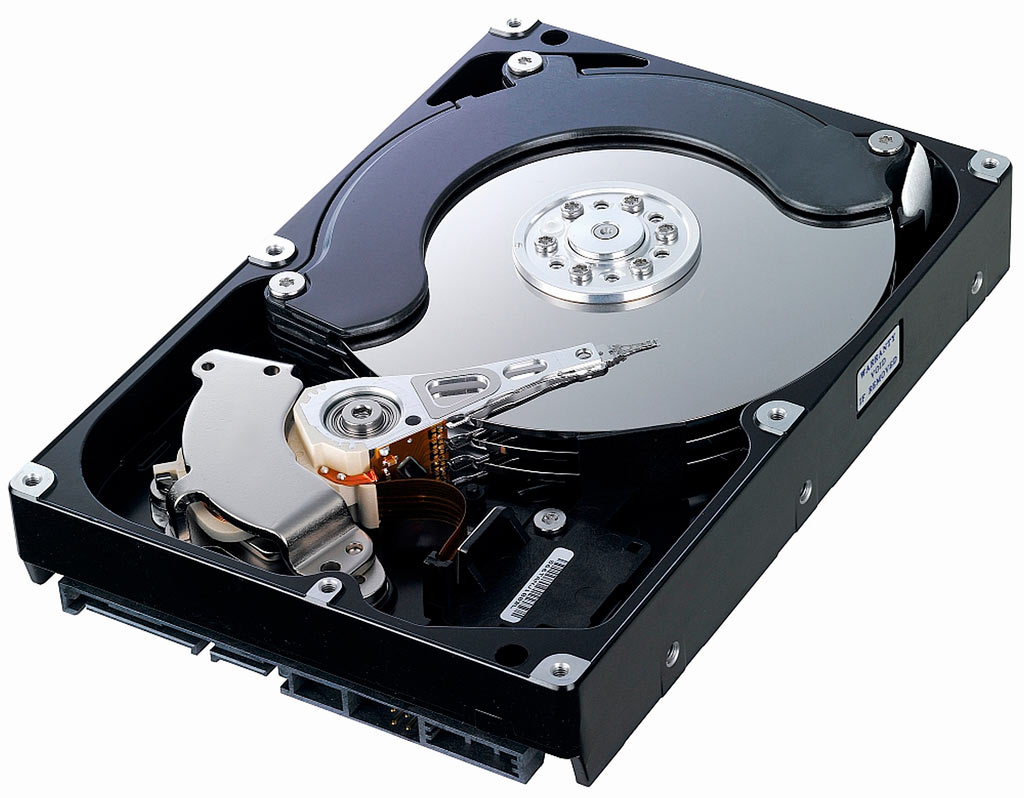Hard Drive Emergencies
The click of death normally happens when the hard drive heads cannot tell where the tracks required are on the platter(s).
This causes the heads to keep moving until the actuator arm that holds the heads hit a physical stop. The click of death sound that you hear is the sound made when the actuator arm hits the stop. The stop is there to stop the reader heads from leaving the platter(s).This can happen on both desktops and laptop drives
Very often hard drive clicking sounds are directly related to power supply problems. This can be because of a faulty power supply or a power supply that is overloaded.
Some hard drives are more prone to make clicking sounds when the drive is highly fragmented.If you have a hard drive making clicking sounds you could defragment the drive to see if that stops or reduces any clicking noises. If a disk defrag helps then you should defrag your hard drive more often.
Gradual disk failure (or partial failure) may present in the following ways:
- Spontaneously vanishing data
- Patchy but significant slowing down of the PC
- Windows errors and crashes
- Auto-ScanDisk surface scan on startup
- S.M.A.R.T error during BIOS phase of startup
- Explicit disk error messages during startup or in Windows
- Errors found when running a S.M.A.R.T. utility
- Errors found when running Check Disk (CHKDSK) or similar diagnostics.
Anything that corrupts data in RAM, or on tranfer to and from the hard drive, can cause corruption of the hard drive contents, e.g.:
- Bad RAM (Random Access Memory)
- Bad processor fan (overheating)
- Faulty or too-long data cables
- Overheated or poorly-grounded hard drive
- Faulty motherboard, hard drive controller, or processors.
These failures can have two broad effects; corrupting what is written to the disk, and corrupting where things are written to the disk. Both can be very disasterous!
Do you have backups of any important information on the desktop or laptop hard drive?
All businesses, no matter what size, should be backing up any important modified data at least once a day. These backups should be monitored to ensure they are successful and test restores done regularly to check that the backups are working correctly. Unfortunately personal or home computer systems are very often not backed up at all, or not backed up often enough.
Items you may want to consider backing up are:
- Documents
- Spreadsheets
- Presentations
- Email contacts information
- Photos
- Videos
- Music
- Software licenses
- Application data
- Software installation files
- Game profiles and game saves
- Internet favourites/bookmarks
- Password and system settings information.
If your desktop or laptop are making a hard drive clicking noise and the hard drive is still accessible you need to make a decision now of whether or not to try and get a backup of the data on this hard drive. Not all hard drive clicking sounds mean that the drive is about to fail, however unless the hard drive has no important data on it at all now is the time to think about backing up any data.
If the data on the desktop or laptop is extremely important to you or worth a lot of time or money to you then you may wish to use CHCSS Professional Hard Drive Recovery Service.
